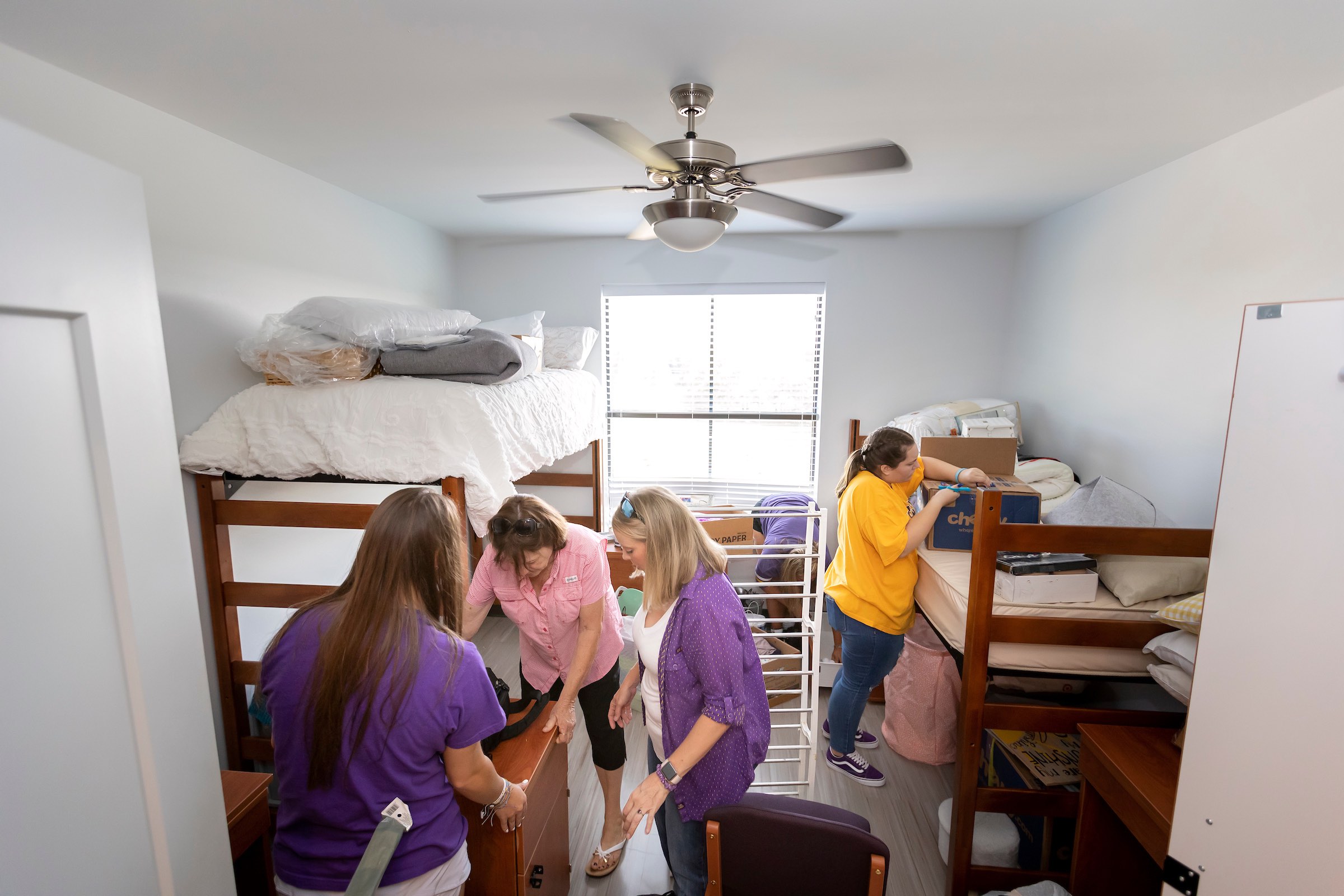Getting Involved in Your Student's Roommate Conflict
August 15, 2022
Living with a roommate can be a new frontier for most students, so navigating boundaries and interpersonal conflict can feel uncomfortable. Oftentimes parents will jump in, in an effort to save their student from an awkward situation.

A family poses for a photo on move-in day.
Communication is key.
Encourage your student to have a steady flow of communication with their roommate from day one. Remind your Tiger of the importance of setting respectful boundaries early, being kind, and being receptive to feedback and honest conversations throughout the school year.
Be a cheerleader, not a jury.
If a conflict does arise, motivate your student to talk to their roommate about the issue. If your student brings a problem to your attention, it's important not to rush to solve the issue for them and remember that there’s another side to the story. Encourage your student to talk to their roommate directly while offering examples of ways to start that tough conversation. Ask your Tiger how they would like to be approached if the situation was reversed. Cheer them on as they experience this new area of personal growth.
Know the resources.
If your student is unable to resolve the issue with their roommate, encourage them to talk to their resident assistant (RA). RAs can provide an unbiased perspective on roommate conflicts, and if needed, can lead a mediation between them. RAs will also go over the roommate agreement that was completed at the beginning of the semester to facilitate conversations about respecting boundaries. At this point, you may feel it’s time to step in; however, it's still important to empower your student to lead this process.
If the student still needs help resolving the issue, they should speak with their residence coordinator (RC). RCs are professional live-in staff members who oversee each of our communities and are trained to handle a wide range of issues, including roommate conflicts.
The majority of roommate conflicts do not reach the point of needing a room change. However, if resolution strategies have not been working thus far, students can request to be relocated. Students will work directly with their RC to coordinate the move and get connected with their new community.
Ask for help.
Transitions into new communities can be hard, so support from home can help students throughout the process. Instead of assuming that your student needs help or acting on their behalf, practice asking questions that better serve as a safe space for your Tiger. Some of those questions can include, “Do you just need a place to vent or do you want me to offer solutions?” or “Would you like me to get involved?” Often getting that clarification will prevent unnecessary parental involvement in roommate conflicts and open better communication between what your Tiger needs or wants from you.

Two students moving into Cedar Hall alongside family members.
Safety first.
The safety of our residents is our priority, and we want to ensure that your student feels comfortable in their room while working through roommate conflict. If there is a concern for your student’s safety, you can always find a point of contact on our Resident Resources page. At any point if a student feels unsafe, contact LSU Police at 225-578-3231 or 911.


